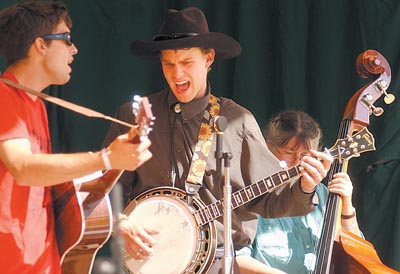
My husband and I recently spent a month in Rwanda, visiting his parents who have been Baptist missionaries there for 35 years. For my husband it was a trip home, a chance to be in familiar places, to be known, and to exhale. For me it was a chance to know my husband better by experiencing where he grew up, to be on vacation for a month, to spend the holidays with my in-laws as our gracious hosts, and to explore a new country.
Rwanda is a beautiful country in central Africa. Located just 2 degrees below the equator, Rwanda is lush and green and about the size of Maryland. It is bordered to the north by Uganda and a spectacular volcano range that is home to the rare Mountain Gorillas, to the east by Tanzania beyond Rwanda’s only game park, to the south by Nyungwe Forest – source of the great Nile River – along the border with Burundi, and to the west by beautiful and vast Lake Kivu marking the border with Congo.
With its lowest point above 3,000 feet, Rwanda deserves the moniker the Land of a Thousand Hills. As in any “developing” country, parts of Rwanda are very developed and modern and some things are not quite as far along.
We spent the bulk of our time in Kigali, the capital city of close to 1 million people where my husband’s parents have lived since 1985. Kigali is a mostly modern, safe, stable city and it is enjoying a time of foreign investment and economic growth. Most of the roads in Kigali are paved, the city water is generally working and the municipal electricity is even more reliable. We were even able to watch our beloved Stanford football team in the 100th Rose Bowl live at midnight.
The occasional coffee shops, large discount department stores, yuppie English-speaking church, and downtown core the size of San Jose all replicate American staples. But the juxtaposition of old and new exists even in the capital city.
While out walking, we would often pass children on their way to or from springs and other water sources, carrying the day’s supply of fresh water on their heads for all their cooking and personal hygiene needs. Charcoal is still the main cooking fuel and the country’s prominent art form is Imigongo, which uses cow dung to create geometric shapes on wooden boards.
Heavily rutted dirt roads dominate the rural transportation network and there is very little mechanization for any activity because labor is so inexpensive. I have been middle class all my life and I have never considered myself rich until I spent $45 on lunch for two in Rwanda. A blue-collar wage in Rwanda is 2,000 Rwandan Francs per day, which amounts to about $3 in U.S. dollars. I earn $3 in less than 9 minutes from my desk at my office job in Morgan Hill. That insane difference did not sink in until I realized my casual lunch with my husband amounted to 15 days of work for a laborer or house helper. 15 days! I suddenly felt like Bill and Melinda Gates flippantly spending $1,500 a plate for a lavish dinner.
The one word I learned in Kinyarwanda – the common language spoken throughout the country – is how to say “white person”. Any time we were outside of Kigali’s city center we heard “Muzungu”, often uttered with excitement from small children.
When we rode through a rural area on a 17-mile bike ride for Christmas Eve, children in small villages along the way shouted “Muzungu! Muzungu! Muzungu!” Children of all ages would come scrambling out of their adobe homes and their banana tree-lined yards to practice their English by shouting “Good morning!” regardless of the time of day and demanding “How are you?” Even on the street where my in-laws have lived since 1995 we heard “Muzungu” as heads turned and eyes followed us when we walked passed.
Rwanda is a beautiful country and worth a visit for anyone who can bear the 24 hours of flight time. You will be greeted by warm air at midnight and thousands of green hills. Fresh marakuja (passion fruit), pineapple, avocados, and mangoes abound. You will experience the elegance of mosquito nets and the awe of Karasimbi, a 15,000-foot volcano. They even drive on the right side of the road and follow most traffic laws by African driving standards.
For adventure seekers there are the rare Mountain Gorillas, Lake Kivu one of Africa’s Great Lakes, lush rainforests, and my personal favorite: tent camping with zebra and topi grazing nearby at Akagera National Park. You will be surrounded by the people and the geography of Rwanda Nziza, Beautiful Rwanda.
Guest columnist Jennifer Scheer is the Executive director of the Santa Clara County Farm Bureau. Anyone interested in writing a guest column can contact Editor Mark Derry at ed****@****ic.com.













